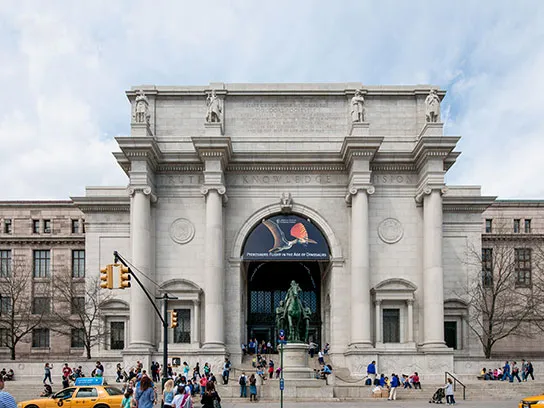The American Museum of Natural History, a prominent institution known for its excavation of Native American gravesites, is taking steps to close exhibits displaying cultural materials that could potentially be returned to tribal nations. This decision aligns with the museum’s efforts, along with other institutions like the Field Museum of Natural History in Chicago, to comply with new federal regulations designed to expedite the return of ancestral remains and sacred items under the Native American Graves Protection and Repatriation Act (NAGPRA). “The Repatriation Project,” an investigative series by ProPublica, shed light on the challenges museums have faced in adhering to NAGPRA over the past three decades.
In a letter addressed to the museum’s staff, Sean Decatur, the president of the American Museum of Natural History, announced the closure of the “Eastern Woodlands and Great Plains Halls” effective immediately. These exhibit halls house items from tribes in Montana, the Dakotas, Wisconsin, and other states and are deemed outdated. The move reflects an increasing awareness and urgency among museums to reshape their relationships with and representations of Indigenous cultures.
Simultaneously, the Field Museum has opted to cover several displays of tribal items, emphasizing its commitment to NAGPRA compliance and collaboration with affiliated communities. ProPublica’s reporting, based on federal data, suggests that numerous tribes may be eligible to claim ancestral remains and sacred objects from these museums. The new federal regulations, enacted this month, prohibit the display of items subject to NAGPRA without tribal consent and prohibit unauthorized research.
Museums are now obligated to determine, in consultation with tribes, the rightful claimants for human remains or items in their collections. The regulations close a loophole that previously allowed museums to claim items as “culturally unidentifiable,” preventing their immediate return to tribes. Despite the ban on destructive research on human remains at the American Museum of Natural History in 2020, ProPublica’s December report highlighted repatriation delays and the museum’s reluctance to return items, including those from the Wounded Knee massacre site.
While pressure has been mounting on museums to accelerate repatriation efforts, ProPublica’s December report indicated that many human remains and sacred objects, approximately 97,000 ancestors, still reside in museum collections. Among the more than 600 institutions and federal agencies subject to NAGPRA, around 180 museums have reported not repatriating any ancestors or belongings.
The American Museum of Natural History, having made 47% of reported Native American remains available for return, retains control over at least 1,800 ancestors and over 4,060 funerary items associated with those individuals.















































